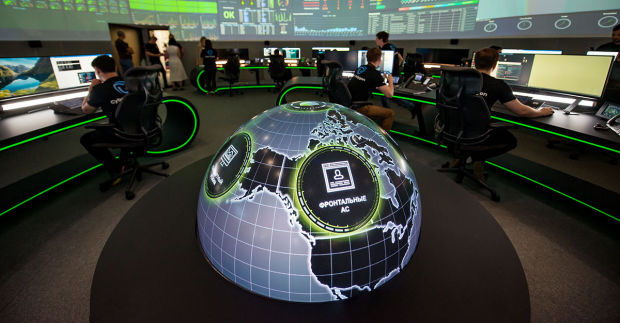
Breaking News
 China Will Close the Semiconductor Gap After EUV Lithography Breakthrough
China Will Close the Semiconductor Gap After EUV Lithography Breakthrough
 The Five Big Lies of Vaccinology
The Five Big Lies of Vaccinology
 Large global study analyzing data from 192 countries has sparked intense debate by suggesting...
Large global study analyzing data from 192 countries has sparked intense debate by suggesting...
Top Tech News
 EngineAI T800: Born to Disrupt! #EngineAI #robotics #newtechnology #newproduct
EngineAI T800: Born to Disrupt! #EngineAI #robotics #newtechnology #newproduct
 This Silicon Anode Breakthrough Could Mark A Turning Point For EV Batteries [Update]
This Silicon Anode Breakthrough Could Mark A Turning Point For EV Batteries [Update]
 Travel gadget promises to dry and iron your clothes – totally hands-free
Travel gadget promises to dry and iron your clothes – totally hands-free
 Perfect Aircrete, Kitchen Ingredients.
Perfect Aircrete, Kitchen Ingredients.
 Futuristic pixel-raising display lets you feel what's onscreen
Futuristic pixel-raising display lets you feel what's onscreen
 Cutting-Edge Facility Generates Pure Water and Hydrogen Fuel from Seawater for Mere Pennies
Cutting-Edge Facility Generates Pure Water and Hydrogen Fuel from Seawater for Mere Pennies
 This tiny dev board is packed with features for ambitious makers
This tiny dev board is packed with features for ambitious makers
 Scientists Discover Gel to Regrow Tooth Enamel
Scientists Discover Gel to Regrow Tooth Enamel
 Vitamin C and Dandelion Root Killing Cancer Cells -- as Former CDC Director Calls for COVID-19...
Vitamin C and Dandelion Root Killing Cancer Cells -- as Former CDC Director Calls for COVID-19...
 Galactic Brain: US firm plans space-based data centers, power grid to challenge China
Galactic Brain: US firm plans space-based data centers, power grid to challenge China
Here's What Happened at Cyber Polygon… You are Not Going to Like it

This simulation took place on July 9, 2021 and was sponsored by the World Economic Forum under the watchful eye of its founder, Klaus Schwab – and it was live streamed to the world. Many people were concerned because past simulations of large-scale disasters sometimes turned out to be rehearsals for a planned event – such as 9/11 and Covid-19.
As though on cue, to create heightened interest in the Polygon, a huge ransomware attack took place over Fourth of July weekend, just before the live stream, which can be watched, below. The video compares cyber threats to Covid-19, which was known as an "anticipated risk" and says that a cyber risk is the "digital equivalent". It is estimated that, if the internet is shut down for one day, it would cost economies $50-billion. In addition to the economic loss, the termination of essential services, such as health care and transportation, would cause great human hardship and premature death.
Approximately five-million people tuned in to the live stream. The simulation involved 120 teams from 29 countries. It "featured global leaders and experts, including Mikhail Mishustin, Prime Minister of the Russian Federation, and Klaus Schwab, Founder and Executive Chairman, World Economic Forum, as well as top officials from INTERPOL, ICANN, Visa, IBM, Sberbank, MTS and other organizations."
One of the end goals of Cyber Polygon was to determine how to do a more thorough job of silencing criticism that goes against the mainstream narrative. Closing down the Internet completely, except for governments and favored corporations, would be the policy of choice. -GEG

 This is why RAM costs so much
This is why RAM costs so much

